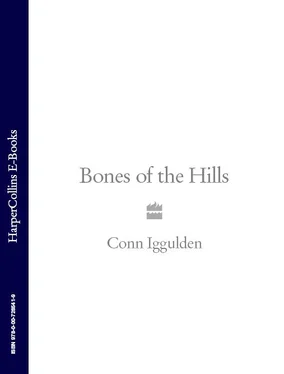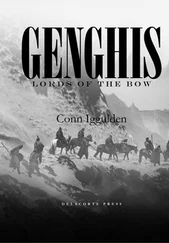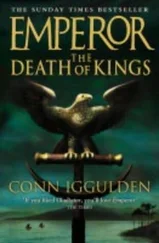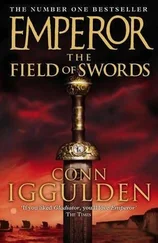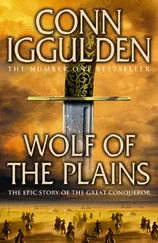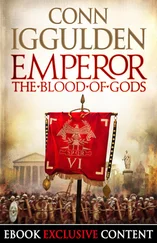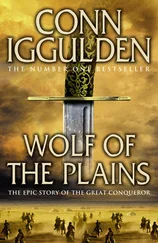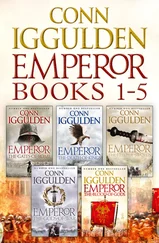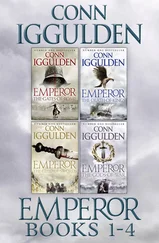Conn Iggulden - Bones Of the Hills
Здесь есть возможность читать онлайн «Conn Iggulden - Bones Of the Hills» — ознакомительный отрывок электронной книги совершенно бесплатно, а после прочтения отрывка купить полную версию. В некоторых случаях можно слушать аудио, скачать через торрент в формате fb2 и присутствует краткое содержание. Жанр: Исторические приключения, на английском языке. Описание произведения, (предисловие) а так же отзывы посетителей доступны на портале библиотеки ЛибКат.
- Название:Bones Of the Hills
- Автор:
- Жанр:
- Год:неизвестен
- ISBN:нет данных
- Рейтинг книги:4 / 5. Голосов: 1
-
Избранное:Добавить в избранное
- Отзывы:
-
Ваша оценка:
- 80
- 1
- 2
- 3
- 4
- 5
Bones Of the Hills: краткое содержание, описание и аннотация
Предлагаем к чтению аннотацию, описание, краткое содержание или предисловие (зависит от того, что написал сам автор книги «Bones Of the Hills»). Если вы не нашли необходимую информацию о книге — напишите в комментариях, мы постараемся отыскать её.
Bones Of the Hills — читать онлайн ознакомительный отрывок
Ниже представлен текст книги, разбитый по страницам. Система сохранения места последней прочитанной страницы, позволяет с удобством читать онлайн бесплатно книгу «Bones Of the Hills», без необходимости каждый раз заново искать на чём Вы остановились. Поставьте закладку, и сможете в любой момент перейти на страницу, на которой закончили чтение.
Интервал:
Закладка:
It is a difficult concept to understand eight hundred years later, but the fear induced by Genghis’ mobile forces was perhaps as effective in controlling a beaten province as the stolid presence of Romans. In the seventeenth century, the Muslim chronicler Abu’l Ghazi wrote:
Under the reign of Genghis Khan, all the country between Iran and the land of the Turks enjoyed such a peace that a man might have journeyed from sunrise to sunset with a golden platter on his head without suffering the least violence from anyone.
Sheer speed and destruction was crucial to the Mongol success. After all, in the campaign against the Chin emperor, the armies of Genghis Khan attacked more than ninety cities in a single year. Genghis himself was involved in storming twenty-eight, while being repulsed from only four. Historically, he benefited from the fact that China had not yet begun to use gunpowder efficiently in war. Only six years after the fall of Yenking, in 1221, a Chin army used exploding iron pots against the southern Sung city of Qizhou, with a shrapnel effect very like modern grenades. Those who came after him would have to face the weapons of a new era.
The scene against Russian knights in the first chapter takes place around the same time as the fifth crusade to the Holy Land. To put Russia in historical perspective, the huge cathedral to St Sophia in Novgorod was built as early as 1045 and replaced a wooden church with thirteen domes that was built a century before that. Medieval Russia and indeed Europe was on the brink of the great period of cathedral building and Christian expansion that would clash with Islam for the next four centuries. I have described the period armour and weapons of the knights as accurately as possible.
The Mongols did reach Korea – though I used an older pronunciation of ‘Koryo’ throughout. The name means the ‘high and beautiful land’. Mongol forces destroyed the Khara-Khitai, a branch of the Chin who had left their homeland and dug themselves into the mountains of Korea, where it was beyond the ability of that dynasty to root them out.
In men like his brother Khasar, Jebe and Tsubodai, the khan had found a band of generals who justified the name of ‘the hunting dogs of Genghis’. They were practically unstoppable – and yet Genghis turned towards Islamic central Asia before the conquest of China, even northern China, was complete. In the history, Jebe, the arrow, was established in his role earlier than I have it, but the pressures of plotting makes changes sometimes inevitable. He and Tsubodai became the two most famous generals of their day – twins in ability, ruthlessness and absolute loyalty to the khan.
Genghis did not fight to rule cities, for which he had no use whatsoever. His purpose was almost always personal, to break or kill individual enemies, no matter how many armies and cities stood in the way. He was prepared to treat once with the Chin Emperor over Yenking, but when the Emperor ran for Kai-Feng-fu, Genghis burned the city and sent an army after him. As wide-ranging as the destruction was, it was still a battle between Genghis and one family.
Other events made Genghis look away from his single-minded and personal approach to warfare. It is true that one of the Mongol diplomatic – read spy – caravans was slaughtered by the Shah of Khwarezm. Genghis sent between 100 and 450 men (depending on the source), only to see them held by the governor of Otrar, a relative of the shah. Even then, Genghis assumed the man was a rogue and sent three more men to accept the governor as prisoner and negotiate for the release of the first group. They too were killed and it was that act that brought Genghis into the Islamic nations. At that point in time, he almost certainly intended to complete the conquest of China. He had no desire to open up an entire new front against a teeming enemy. Yet he was not a man to ignore a naked challenge to his authority. The Mongol army moved and millions would die. Genghis went alone to the top of a mountain and prayed to the sky father, saying: ‘I am not the author of this trouble, but grant me the strength to exact vengeance.’
In infuriating Genghis, the governor of Otrar made what is perhaps one of the worst military decisions in history. Perhaps he thought he could scorn the khan of the Mongols with impunity. As a cousin to the shah and with vast armies available, he may have thought little of the Mongol threat.
The original city of Otrar remains rubble today and has never been rebuilt. Inalchuk was executed by having molten silver poured into his eyes and ears. Though I have altered the order of falling cities, the shah was routed and sent running with Tsubodai and Jebe on his trail, as I have described it. He stayed ahead of them for a thousand miles, crossing modern-day Uzbekistan and Iran to the shores of the Caspian Sea, where he took a boat with his sons to a small island. Exhausted, he died of pneumonia there and his son Jelaudin (or Jalal Ud Din) was left to take his father’s place at the head of the Arab armies. He faced Genghis at last against the Indus river and escaped almost alone, while his army was crushed. The boy who would become Kublai Khan was indeed there and Genghis is said to have made a point of noting Jelaudin’s bravery to him, as an example of how a man should live and die.
The Arab Assassins are perhaps most famous for giving us the word in English, from Hashishin, by way of Marco Polo’s ‘Ashishin’, following their practice of creating a mad frenzy with the drug. However, it may have the simpler route of coming from ‘assasseen’, Arabic for ‘guardian’. As Shia Muslims, they differed from the main Sunni branch of Islam. The practice of showing drug-dazed recruits a version of heaven and hell is true. One can only imagine the result of such experiences on impressionable young minds. Certainly their reputation was for ferocious loyalty to the ‘Old Man of the Mountains’. At their height, their influence was vast and the story is true about leaving a poisoned cake on Saladin’s chest as he slept, a clear message to leave them alone in his conquests. Though their strongholds were destroyed by Genghis and the khans after him, the sect remained active for many years.
Elephants were used against Mongols at Otrar, Samarkand and other battles – a hopeless tactic against warriors whose first weapon was the bow. The Mongols were not at all intimidated by the enormous assault animals and hammered them with arrows. Each time, the elephants stampeded and crushed their own ranks. At one point, Genghis found himself in control of captured elephants, but turned them loose rather than use such unreliable creatures.
For reasons of plot, I moved the minaret to which Genghis ‘bowed’ to Samarkand. It is in fact in Bukhara and stands to this day at around 150 ft tall. Genghis is said to have addressed the wealthy merchants of that city, telling them through translators that they had clearly committed great sins and if they needed proof, they should look no further than his presence among them. Whether he actually saw himself as the punishment of God or was simply being whimsical can never now be known.
Note: In the Islamic faith, Abraham is considered the first Muslim, who submitted to one god. As with Moses and Jesus, the description of his life in the Koran differs at significant points from that of the Bible.
Genghis’ eldest son Jochi was the only general ever to turn against him. He took his men and refused to return home. Though it is well recorded, a writer of historical fiction sometimes has to explain how something like that could happen. His men would have left wives and children behind and that seems extraordinary to modern sensibilities. Could he have truly been so charismatic? It may seem like an odd example, but I recalled the cult leader David Koresh, whose followers were killed in a siege in Waco, Texas, in 1993. Before the end, he had taken the wives of married followers to his own bed. Not only did the husbands not object, they even accepted his ruling that they would no longer lie with their wives themselves. That is the power of a charismatic leader. For those of us who do not command that sort of loyalty, men like Nelson, Caesar and Genghis must always be something of a mystery. The exact manner of Jochi’s death remains unknown, though if it was at the order of his father, it would not have been recorded. The timing is, however, suspiciously convenient. It suited Genghis very well that the only man to betray him died shortly after taking his men north. We can be certain Genghis would not have employed Assassins, but that is all.
Читать дальшеИнтервал:
Закладка:
Похожие книги на «Bones Of the Hills»
Представляем Вашему вниманию похожие книги на «Bones Of the Hills» списком для выбора. Мы отобрали схожую по названию и смыслу литературу в надежде предоставить читателям больше вариантов отыскать новые, интересные, ещё непрочитанные произведения.
Обсуждение, отзывы о книге «Bones Of the Hills» и просто собственные мнения читателей. Оставьте ваши комментарии, напишите, что Вы думаете о произведении, его смысле или главных героях. Укажите что конкретно понравилось, а что нет, и почему Вы так считаете.
